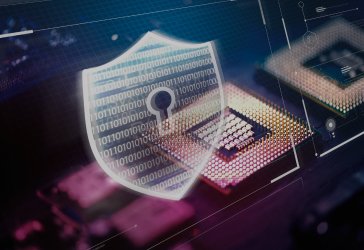In today’s hyper-connected world, where almost everything we do involves digital devices and the internet, cybersecurity has become more important than ever. Whether it’s protecting personal information, securing business data, or defending against cyber-attacks, cybersecurity is a crucial component of our digital lives. But what exactly is cybersecurity, and why does it matter?
What Is Cybersecurity?
Cybersecurity refers to the practices, technologies, and processes designed to protect computers, networks, and data from unauthorized access, attacks, damage, or theft. The goal of cybersecurity is to ensure that digital systems, applications, and networks remain secure from malicious threats such as hackers, malware, and other cybercriminal activities.
Cybersecurity is not a single action, but a set of coordinated measures that safeguard data and systems. It involves everything from basic practices like using strong passwords to complex security protocols used by corporations to protect their sensitive information.
The Growing Threat of Cybercrime
As technology has advanced, so have the tactics of cybercriminals. Cybercrime has become increasingly sophisticated, with hackers targeting individuals, small businesses, and large corporations alike. Some of the most common cyber threats include:
-
Phishing: Cybercriminals use fake emails or websites to trick people into giving up personal information, such as passwords or bank account details.
-
Ransomware: Malicious software that locks users out of their own systems or data until a ransom is paid.
-
Malware: Software designed to damage or disrupt computers, often by corrupting data or stealing sensitive information.
-
Data Breaches: Incidents where hackers gain unauthorized access to confidential data, often leading to identity theft, financial loss, or reputational damage.
The threat landscape continues to evolve as new technologies and tools are developed. What makes these threats even more dangerous is the fact that many attacks can go unnoticed until it’s too late.
Why Cybersecurity Is Essential
In our increasingly digital world, the consequences of a cyber-attack can be devastating. Personal information such as credit card numbers, Social Security numbers, and medical records can be stolen, leading to identity theft or financial loss. For businesses, a cyber attack can result in loss of intellectual property, financial damage, or even the collapse of operations.
Here’s why cybersecurity is so crucial:
-
Protection of Personal Data: Our digital lives are full of personal information — emails, photos, bank details, and social media profiles. Cybersecurity ensures that this data remains private and secure.
-
Safeguarding Financial Information: With online banking, shopping, and transactions, cybersecurity helps to protect financial data and prevent fraudulent activities like credit card fraud.
-
Defending Against Business Risks: For businesses, cybersecurity is about safeguarding intellectual property, trade secrets, and customer data. A breach could severely damage a company’s reputation, legal standing, and financial health.
-
Preventing Cybercrime: Cybercrime affects millions of individuals and businesses worldwide. Cybersecurity measures are necessary to prevent these illegal activities and stop cybercriminals from exploiting vulnerabilities.
Best Practices for Cybersecurity
While large organizations invest in complex security systems, there are simple cybersecurity practices that individuals and small businesses can implement to stay safe online:
-
Use Strong, Unique Passwords: A strong password is your first line of defense. Avoid using easily guessable information, and consider using password managers to store unique passwords for each account.
-
Enable Two-Factor Authentication (2FA): 2FA adds an extra layer of security by requiring a second form of verification (like a text message or an app) in addition to your password.
-
Update Software Regularly: Many security vulnerabilities are fixed through software updates. Ensure that your operating system, antivirus software, and applications are up to date.
-
Be Cautious with Emails and Links: Phishing emails are one of the most common ways cybercriminals gain access to sensitive information. Be wary of unsolicited emails and links that ask for personal information or direct you to unfamiliar websites.
-
Use Antivirus and Anti-Malware Software: These programs help detect and remove malicious software that could compromise your devices. Keep your security software up to date to ensure maximum protection.
-
Backup Your Data: Regular backups ensure that you can restore your data in the event of a ransomware attack or system failure. Use cloud services or external drives to back up important files.
-
Secure Your Wi-Fi Network: Ensure that your Wi-Fi network is secured with a strong password, and avoid using public Wi-Fi for sensitive activities like online banking.
The Future of Cybersecurity
As technology advances, so too does the landscape of cybersecurity. The rise of the Internet of Things (IoT), connected devices, and artificial intelligence (AI) are opening new avenues for cybercriminals, while also creating new ways to protect data. With emerging technologies such as blockchain, biometric security, and machine learning, cybersecurity is becoming smarter and more proactive.
However, as long as we continue to use digital technologies, cyber threats will persist. That’s why it’s crucial to stay informed about the latest security practices and threats, ensuring that we can safeguard our digital lives against ever-evolving dangers.
Conclusion: Stay Safe in the Digital World
Cybersecurity is no longer just an IT concern — it’s a responsibility that everyone must take seriously. From individuals protecting their personal data to businesses safeguarding sensitive information, cybersecurity plays a vital role in keeping us safe in an increasingly connected world.
By staying vigilant, adopting best practices, and implementing robust security measures, we can ensure our digital lives remain secure and protected from cyber threats. In a world where everything is connected, cybersecurity is the foundation of trust, privacy, and safety online.




